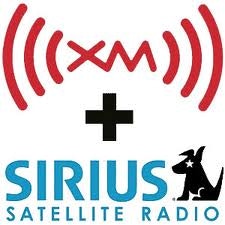
One of the major catalysts for Sirius’ recent movement has been Liberty Media Corp (NASDAQ:LMCAD). The company has been buying shares of Sirius on the open market, and on Jan. 17 Liberty officially became majority owner of Sirius. According to an SEC filing, to seal the deal, Liberty acquired an additional 50 million shares of Sirius at an average price of $3.15. Contrary to recent opinion, this was not a ceiling.
However, although the stock has fluctuated — reaching a high of $3.25 on Feb. 1 — shares have essentially traded flat since Liberty took over. Remarkably, despite significant improvements in execution and the removal of much uncertainty related to former CEO Mel Karmazin’s departure , investors learned last week that everybody still hates Sirius, as more than 400 million shares were sold short at the end of January.
However, these shorts must remember that this is no longer just a wager against Sirius; it’s now a poor hedge against Liberty Media’s John Malone. When was the last time he lost at anything? Bears are still saying that Sirius’ stock is not trading on fundamentals. Then again, Sirius is not your average company. For that matter, not trading on fundamentals has not prevented the stock from ascending more than 6,000% since falling to a nickel four years ago. Granted, there’s a first time for everything; that time has not arrived.
But before we discuss where Sirius is going, let’s take a look at where it is. This is a company that is producing solid double-digit revenue growth, 13% year over year in the fourth quarter. Likewise, not only is this company extinguishing debt at a rapid rate, but adjusted EBITDA is soaring, including a 26% year-over-year jump in the fourth quarter.
Moreover, subscribers continue to prove each year how much they love the service. Self-pay subs grew 36% to roughly 1.7 million. And when you couple this with a stable 2% churn rate, it underscores not only how well this model is working, but that Sirius is finally showing it’s in fact a monopoly. But let’s glance deeper into the sub number for a moment. That net subscriber additions reached 2 million in one year is impressive. Not only does this represent 18% year-over-year growth, but it is 53% higher than the company’s prior guidance of 1.3 million. This supports prior theories that the company is known to lowball its outlook. Chances are, Sirius has done this again with 2013 projections. In that regard, let’s take a look at where is this company heading.
First, investors should also be encouraged that fiscal-year 2012 free cash flow, or FCF, skyrocketed 71% year over year to $709 million — the highest total ever in the company’s history. However, according to the company’s recent guidance, FCF is projected to arrive at $900 million for 2013, or (just) 27% growth. This would be a meaningful slowdown to the 71% advancement in 2012. Likewise, management has guided for a 6% decline in self-pay subs and predicts that the company anticipates 30% less growth in subscribers. Who are we kidding here?
Investors should not make the mistake of thinking that even Sirius believes it will underperform to this degree. Revenue guidance of $3.7 billion assumes just 9% growth, which is 4% slower than 2012. Plus, this does not take into account the increase in self-pay net additions as well as the 12% price hike the company is slowly passing on to subscribers. Essentially, Sirius is projecting a slower rate of growth while car sales are still projected to trend higher. John Malone would not have just spent $158 million one month ago to become majority owner of a company in decline.

